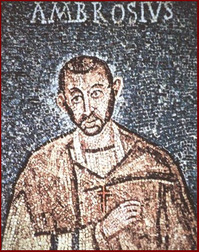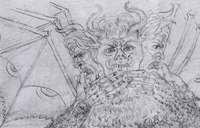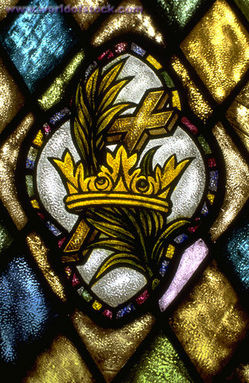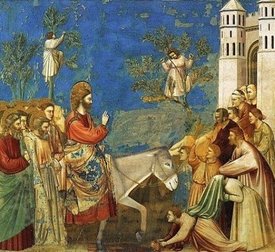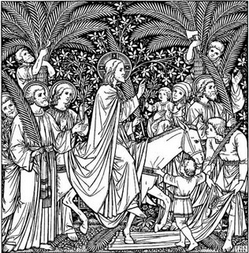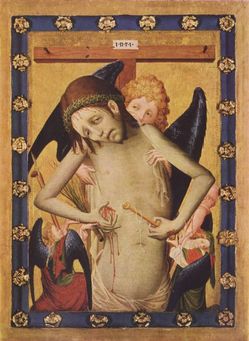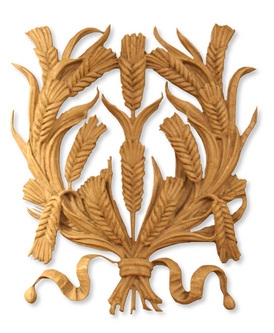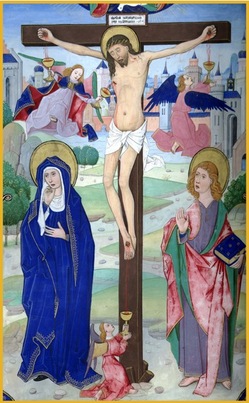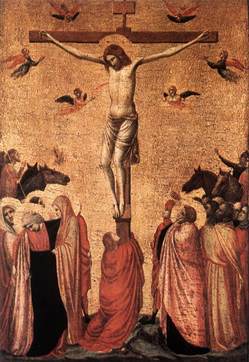 How marvelous, and at the same time amazing, is this mystery! We can never meditate this reality sufficiently. Jesus, though being God, did not want to make of his divine prerogatives an exclusive possession; he did not want to use his being God, his glorious dignity and power, as an instrument of triumph and sign of distance from us. On the contrary, “he emptied himself” assuming our miserable and weak human condition –in this regard, Paul uses a quite meaningful Greek verb to indicate the kenosis, this descent of Jesus. The divine form (morphe) is hidden in Christ under the human form, namely, under our reality marked by suffering, poverty, human limitations and death. The radical and true sharing of our nature, a sharing in everything except sin, leads him to that frontier that is the sign of our finiteness –death. But all this was not the fruit of a dark mechanism or a blind fatality: It was instead his free choice, by his generous adherence to the salvific plan of the Father. And the death which he went out to meet –adds Paul– was that of the cross, the most humiliating and degrading that one can imagine. The Lord of the universe did all this out of love for us: out of love he willed to “empty himself” and make himself our brother; out of love he shared our condition, that of every man and every woman. In this connection, Theodoret of Cyrus, a great witness of the Eastern tradition, writes: “Being God and God by nature and having equality with God, he did not retain this as something great, as do those who have received some honor beyond their merits, but concealing his merits, he chose the most profound humility and took the form of a human being” (Commentary on the Letter to the Philippians, 2:6-7).
How marvelous, and at the same time amazing, is this mystery! We can never meditate this reality sufficiently. Jesus, though being God, did not want to make of his divine prerogatives an exclusive possession; he did not want to use his being God, his glorious dignity and power, as an instrument of triumph and sign of distance from us. On the contrary, “he emptied himself” assuming our miserable and weak human condition –in this regard, Paul uses a quite meaningful Greek verb to indicate the kenosis, this descent of Jesus. The divine form (morphe) is hidden in Christ under the human form, namely, under our reality marked by suffering, poverty, human limitations and death. The radical and true sharing of our nature, a sharing in everything except sin, leads him to that frontier that is the sign of our finiteness –death. But all this was not the fruit of a dark mechanism or a blind fatality: It was instead his free choice, by his generous adherence to the salvific plan of the Father. And the death which he went out to meet –adds Paul– was that of the cross, the most humiliating and degrading that one can imagine. The Lord of the universe did all this out of love for us: out of love he willed to “empty himself” and make himself our brother; out of love he shared our condition, that of every man and every woman. In this connection, Theodoret of Cyrus, a great witness of the Eastern tradition, writes: “Being God and God by nature and having equality with God, he did not retain this as something great, as do those who have received some honor beyond their merits, but concealing his merits, he chose the most profound humility and took the form of a human being” (Commentary on the Letter to the Philippians, 2:6-7).
Pope Benedict XVI, Wednesday General Audience, 8 April 2009, excerpt
